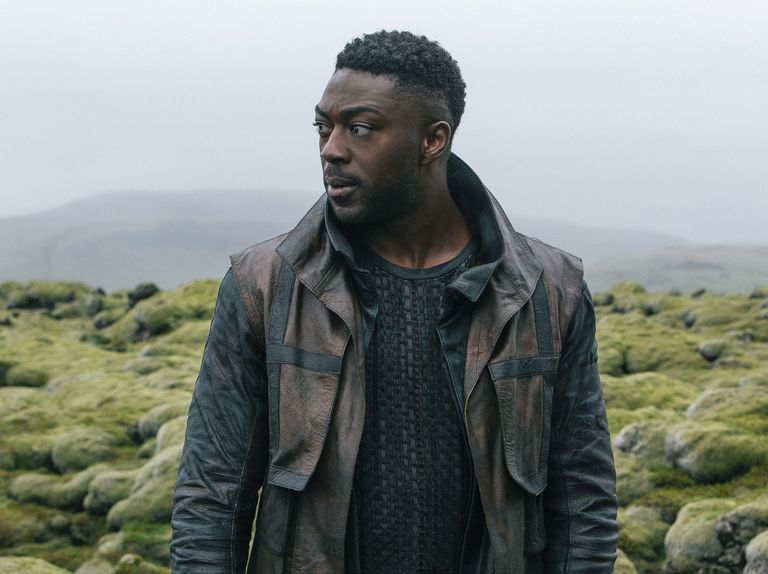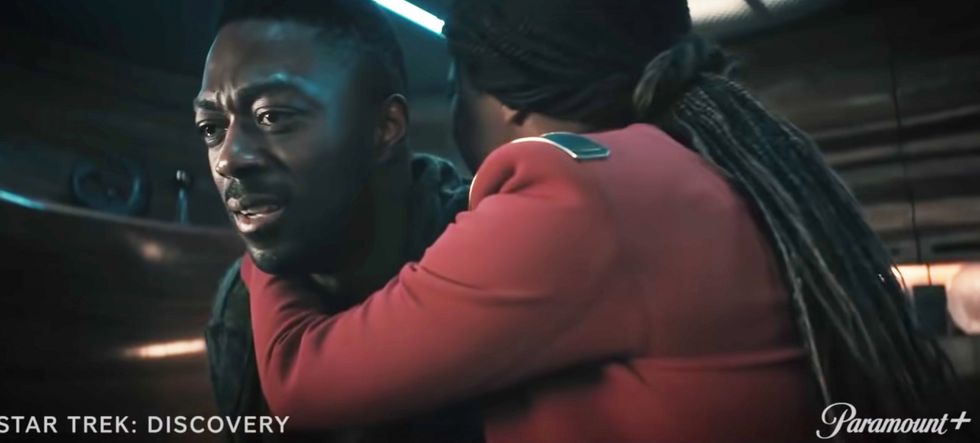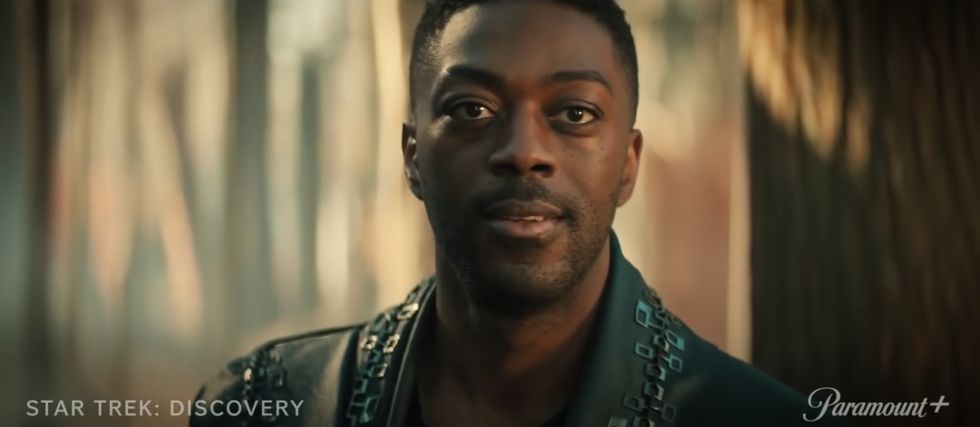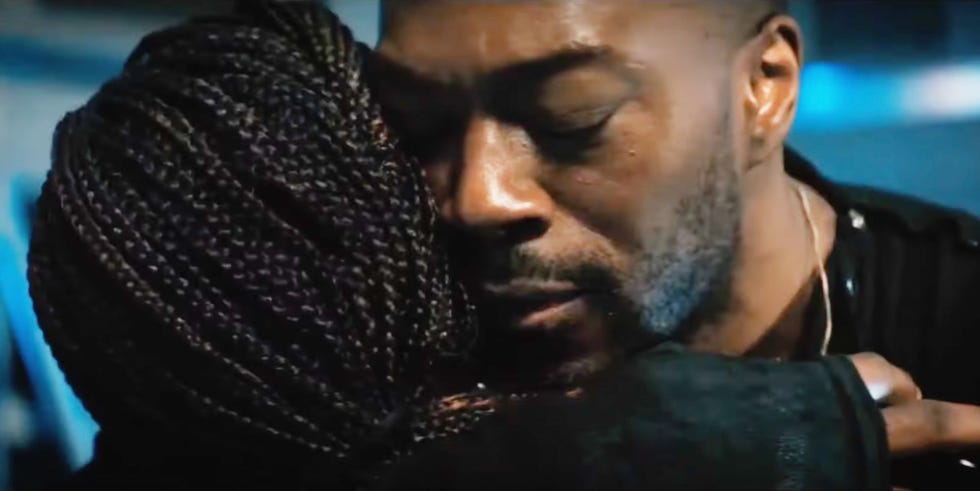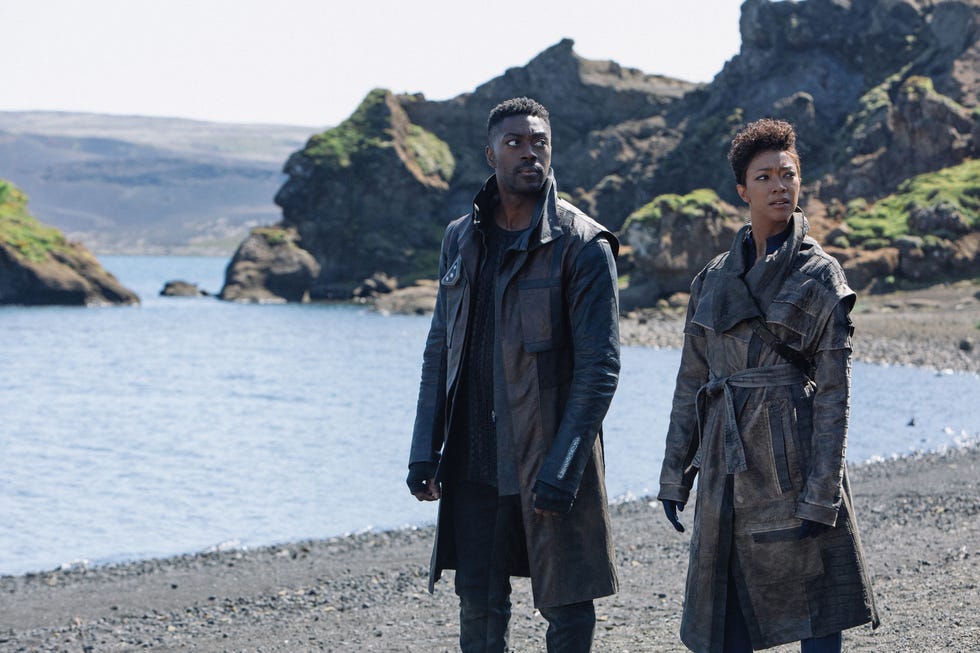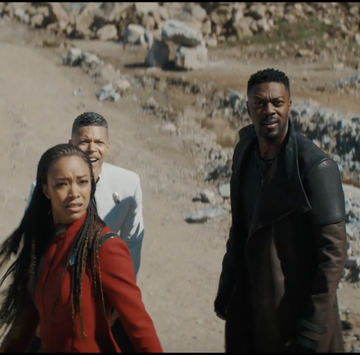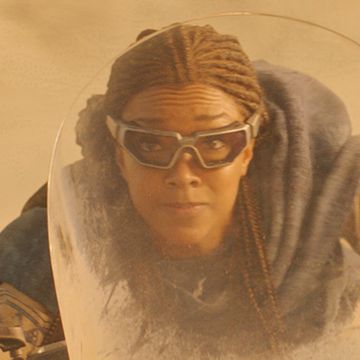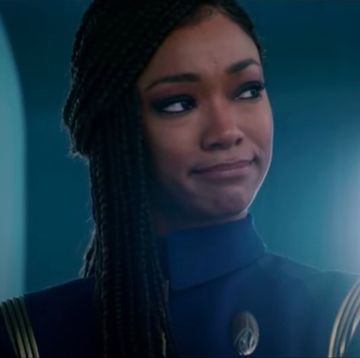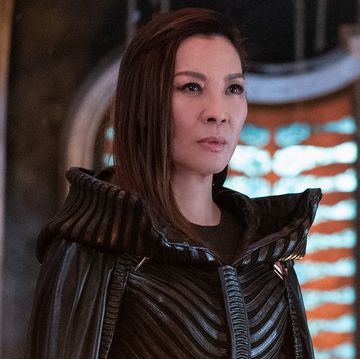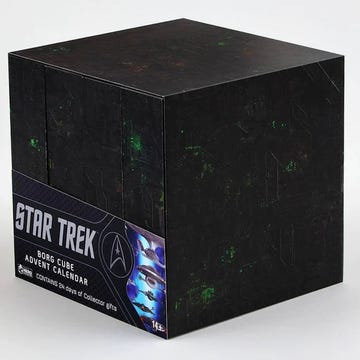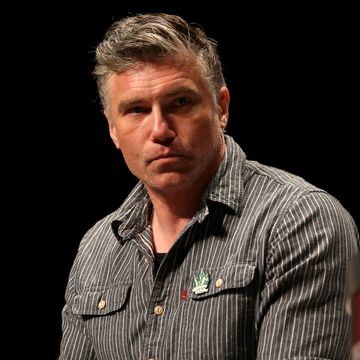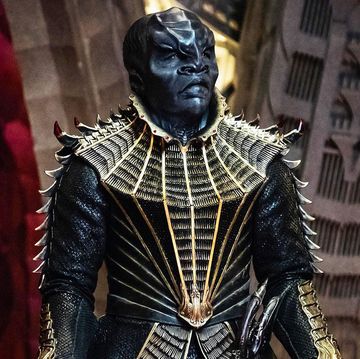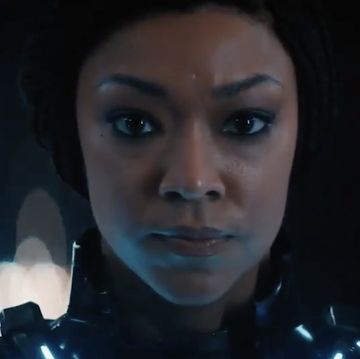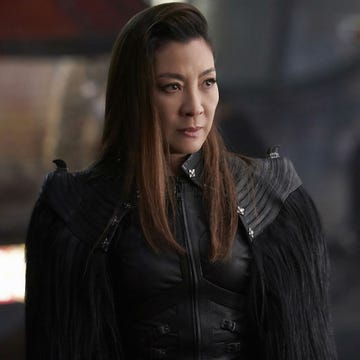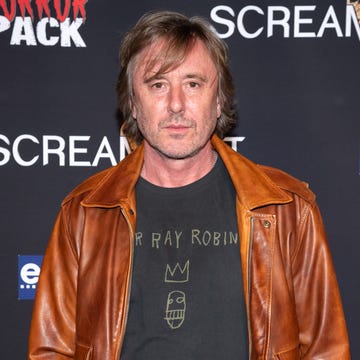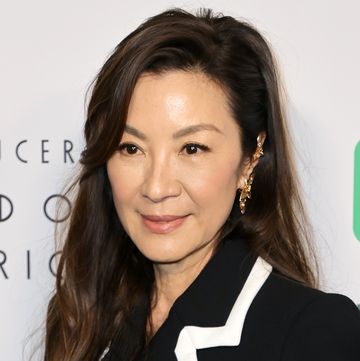Star Trek: Discovery spoilers follow.
It's fair to say that season four of Star Trek: Discovery has well and truly put relative newcomer Cleveland Booker through the wringer.
The cat-loving lone wolf, played by British actor David Ajala, dropped into the Starfleet world back in season three and has quickly become something of a fan favourite thanks to his empathetic nature and relationship with the newly-appointed Captain Michael Burnham (Sonequa Martin-Green).
However, season four's premiere 'Kobayashi Maru' quickly put his resolve to the test. The destruction of his homeland, Kwejian, and more than likely his remaining family that live there, has put a brutal mark on his character and ever since, Booker has been in a tailspin.
But for 35-year-old Ajala, the depiction of his fictional counterpart, at times, felt all too real, with shooting in the States during the pandemic and strict distancing measures in place adding to his own isolation.
Speaking exclusively to Digital Spy, Ajala said: "That uncertainty… everyone was experiencing it. I was experiencing it. Being away from home, away from family, being in lockdown… On set, not being able to embrace my peers the way I want to.
"On Star Trek, we're very loving with each other. It's just organic that we hug each other, and we embrace when we see one another. To not have that, and to be away from home, when we're worrying about this pandemic, trying to make sure we're crossing the T's and dotting the I's... My anxiety levels really went high, and in amongst all of that, we still have to tell a story."
"It was very challenging, but we had the best group of people to embrace that challenge with," he added. "I'm so very thankful for that. So I kind of leaned into what was happening around the world to help with telling Cleveland Booker's story – which is pain, grief, and uncertainty."
Ajala is acutely aware of the weight of his work as well, and felt it was important for him to portray the story of grief and depression as accurately as possible. But by his own admission he admitted he "didn't realise the effect it had on him" until months after filming.
"I remember thinking, with a story like this, I knew this would be something I'd have to sit in for a considerable amount of time, and I had to really make sure that I protect my own mental health," he said. "My spiritual, physical, and mental health, that was really, really important because I wanted to tell the fullness of this guy's story, without holding back. I had to approach it from a place of joy and liberty, as weird and profound as that may sound, it sounds like an oxymoron.
"How can you embrace a character who has gone through such traumatic experiences, but embrace it from a place of levity and joy? It had to be that. It had to be that to survive."
"Booker has the line, where he says 'a drowning man only needs one breath', and it feels like he's literally drowning," he concluded. "So it was very important for me. I know that's a metaphorical way of looking it, but it’s a place of keeping a certain level of buoyancy. So I kept as happy as I could."
Mental health is an increasingly important topic and unfortunately men, and Black men in particular, have traditionally struggled with speaking out about it.
According to research by charities Samaritans and Calm, men only account for 36% of referrals to talking therapies on the NHS. Men are also three times more likely to die by suicide, and equate to 75% of deaths by suicide each year. That percentage has remained that way since the mid-'90s.
Black people are four times more likely than white people to be sectioned under the Mental Health Act, and Black men are also far less likely to attempt to access help when needed.
So when Booker, a Star Trek character Ajala describes as having "physical stature and power", seeks help and counselling from Dr Hugh Culber (Wilson Cruz) in episode four's 'All Is Possible' it didn't escape the actor how important that scene, and the story as a whole, could be to Black and male viewers.
"I remember on the day filming that scene," he explains. "Wilson was really looking forward to it, and so was I. I thought, this is the first time these two characters are meeting in a very, very safe space, and we're dealing with mental health, specifically from the lens – though these are universal themes – from a Black man and a brown man, having this conversation, and we wanted it to be as transparent as possible.
"Before each take, we did an exercise that allowed us to be very, very open and in the moment because we can't do a therapy session and be guarded or kind of skillfully act our way through it. It needed a different energy and flavour. I felt very, very proud how Wilson brought that to the table, brought that out of me and I for him, and to see how people responded to it. That specific therapy session of feeling anger, resentment, pain, frustration, grief and actively working through it, was a very exposing thing to show on TV. But I think for that very reason, that's why it's so important."
He's not wrong. In the hours after the episode aired, Ajala and Cruz's social media accounts were flocked with messages from fans, thanking them for the touching scenes. Many of whom had lost loved ones this year, or were learning to live with their own mental health struggles. Ajala called the response "deeply, deeply humbling".
"Though there are universal themes, there's different nuances because our experiences are similar, but different. Across the board, different races, it is what it is," he explains, adding: "It's very important to see a character who can be… I wouldn't even call it vulnerable, as some people attach a negative connotation to the word vulnerable. How about we say, emotionally available?
"To make yourself emotionally available can come at a cost. But that's the very place where healing takes place.
"I really do hope [viewers are] able to take away few nuggets that they can use to give them the courage to heal. Because I think that's what we all need, a bit of healing and we need to do so in a very safe space. It can be tough because it does get a little messy before it gets better. But I believe it's worth it."
Star Trek: Discovery season 4 airs Fridays at 9pm on PlutoTV in the UK.
If you've been affected by the issues raised in this story, organisations who can offer support include Samaritans on 116 123 (www.samaritans.org) or Mind on 0300 123 3393 (www.mind.org.uk). Readers in the US are encouraged to visit mentalhealth.gov.
Freelance writer, Digital Spy
Tilly is Gold-Standard NCTJ accredited journalist with eight years of experience in entertainment journalism.
She has been heard giving her insight on the latest TV stories on BBC Radio across the country and on BBC News.
Previously working with The Sun Online, Yahoo, Metro.co.uk and Independent IE amongst others, she joined the Digital Spy team from 2021-2023 as Deputy TV Editor (Maternity cover).
With a speciality in TV drama and true crime, Tilly has been praised for her exclusive content with A-list stars ranging from Sir David Attenborough to the lawyers behind Making A Murderer.
She’s happy to report her mum now takes her seriously as a journalist as she got to interview George Clooney once.
